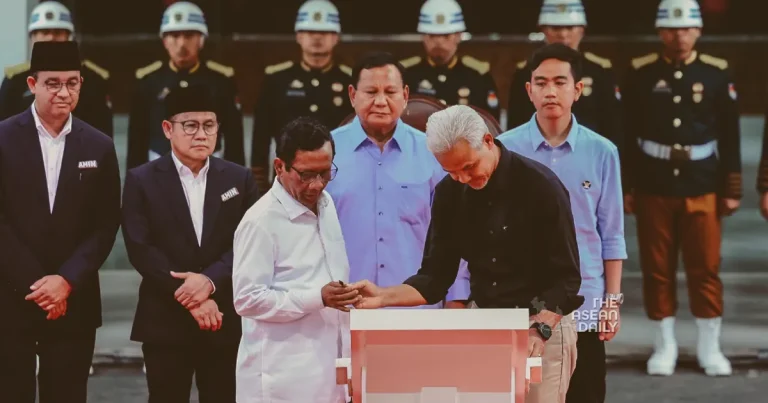6-2-2024 (JAKARTA) As Indonesia gears up for the presidential election on Feb. 14, candidates are eyeing ambitious growth objectives of up to 8% annually, aiming to propel the Southeast Asian nation to advanced-economy status by 2045.
However, recent gross domestic product (GDP) figures reveal that Indonesia’s growth rate has plateaued around 5%, amid ongoing economic uncertainties abroad. This raises questions about the feasibility of achieving the lofty targets set by the next president.
Official data released on Monday indicates that Indonesia’s GDP expanded by 5.05% in 2023, down from 5.31% the previous year. The decline is attributed to falling commodity prices and subdued external demand. Particularly, exports grew by a mere 1.32% in value terms last year, a significant slowdown from the 16.23% growth recorded in 2022.
Indonesia aims to attain high-income status by the nation’s 100th independence anniversary in 2045, necessitating sustained annual economic growth of 6% to 7%. President Joko “Jokowi” Widodo envisions the country climbing to one of the world’s top five economies by that year, up from its current rank of 16th.
Presidential candidate Defense Minister Prabowo Subianto has pledged to achieve 8% annual economic growth, raising his target from previous projections. Former Central Java Gov. Ganjar Pranowo has set a 7% target, while former Jakarta Gov. Anies Baswedan aims for growth between 5.5% to 6.5%.
Prabowo, 72, emphasized his commitment to achieving double-digit growth during a recent conference in Jakarta, advocating for enhanced energy self-sufficiency through the use of biodiesel and biogasoline derived from palm oil.
Ganjar, 55, stressed that 7% annual growth is imperative for Indonesia’s journey to becoming a developed nation by 2045. He underscored the importance of upholding the law, modernizing agriculture, and facilitating access to credit for small and medium-sized enterprises.
Anies, 54, proposed a shift towards labour-intensive industries to address unemployment and income disparity. He expressed reservations about the current administration’s natural resource policy, favouring labour-intensive sectors like manufacturing and agriculture.
Monday’s GDP data, the last before the upcoming polls, could shape voter perceptions of Jokowi’s economic legacy. However, uncertainties persist regarding whether the next president can attain their growth targets, with forecasts suggesting GDP growth around 4.5% for Indonesia this year.




